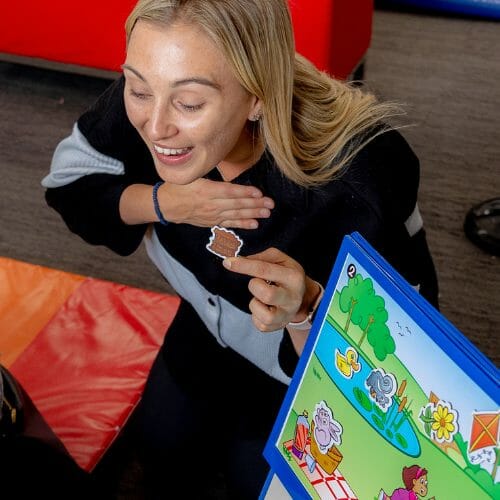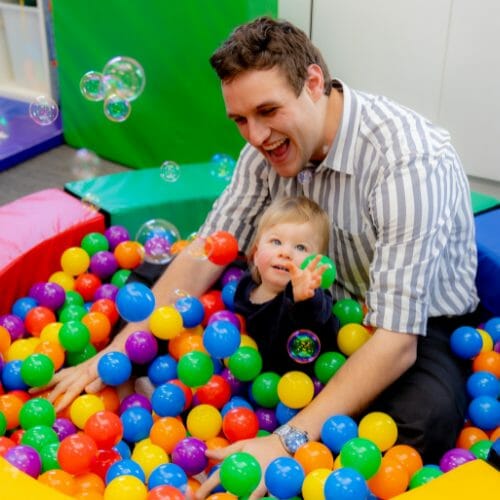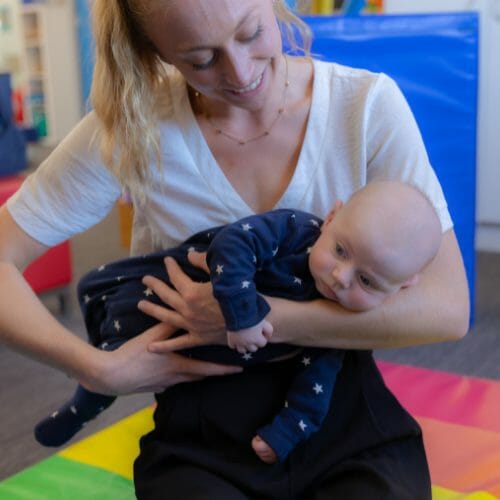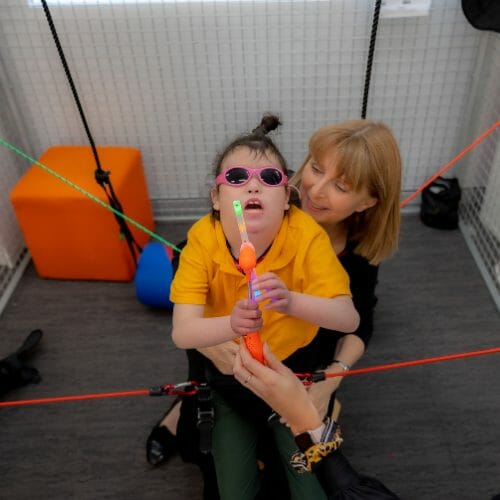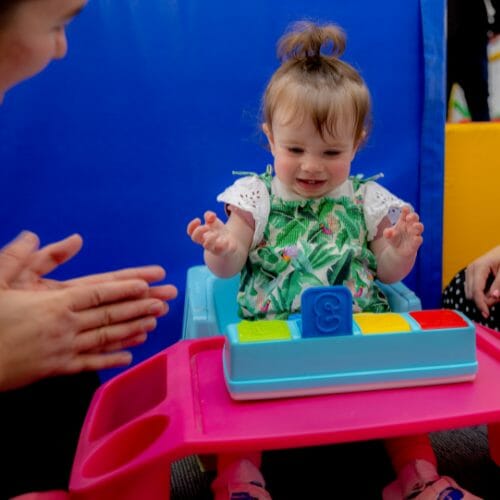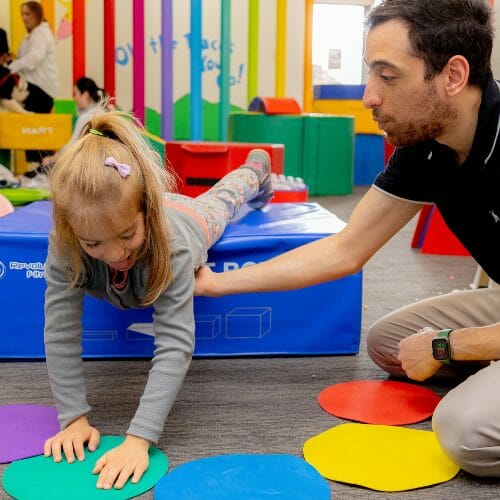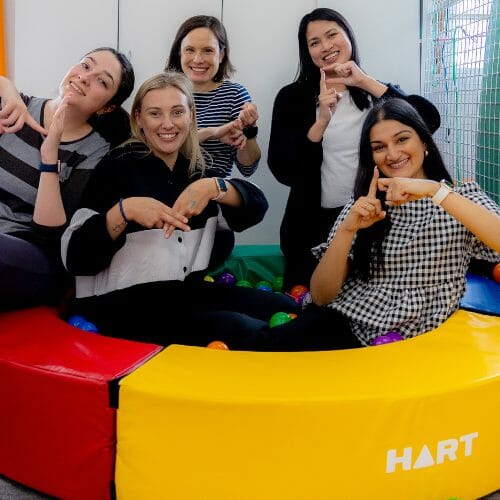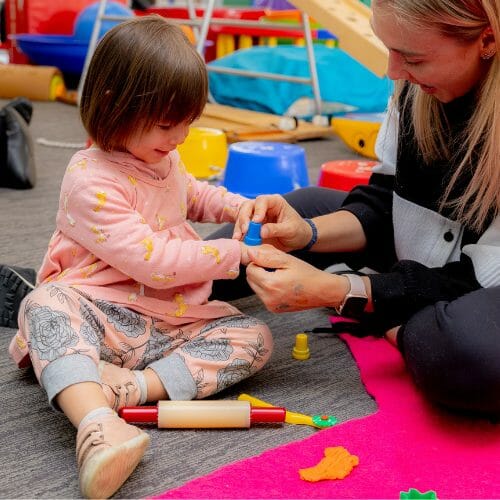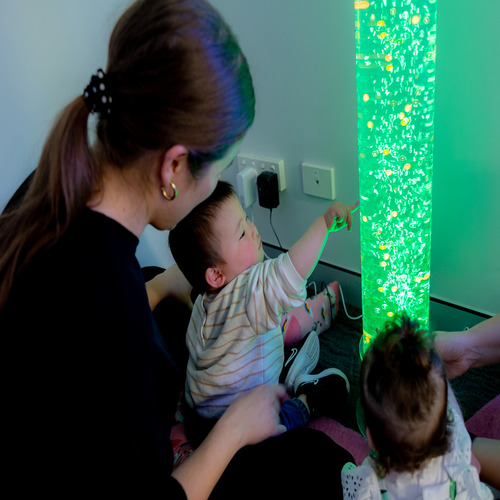The Spider Cage is named as such by the children we treat, who see it as a superhero Spider Man device! We have found that children love the Spider Cage for the freedom that it offers and will often request it for their therapy sessions even though it can be hard work. The Spider Cage, using restrictive bands, allows a child to be involved in gait training, balance and strengthening exercises while their body is correctly aligned and positioned in a partial supported weight bearing position, which is an evidence based therapy used by physiotherapists for the past two decades. Due to the time involved in setting up, it is most easily used during intensives or long therapy sessions.
The Spider Cage allows the therapist to :- Assist the child to feel independent movement without a carer’s hands supporting them - providing development of independence and pride in our own outcomes
- Provide partial weight bearing support needed for the child to balance alone
- Provide support while practicing functional skills in different developmental positions, such as kneeling, sitting and standing
- Provide support while practicing transitions, such as moving between kneeling and standing, sitting and standing, and from half kneeling to standing
- Challenge the child’s balance reactions in a supported environment
- Allows the therapist to have their hands free to facilitate challenging movements and positions, allowing the child to develop confidence and independence
- Provide challenging therapy to bigger/older children in a safe environment
- Assist the child to practice falling which develops protective balance reactions
- Stimulate the vestibular system
- Systematically change the location/direction of cords to reduce the amount of assistance/resistance or to increase the amount of weight bearing until the child is performing tasks independently.
We use the Spider Cage across all our physiotherapy programs, however due to time constraints involved in setting up it is most easily used during intensives or long therapy sessions.
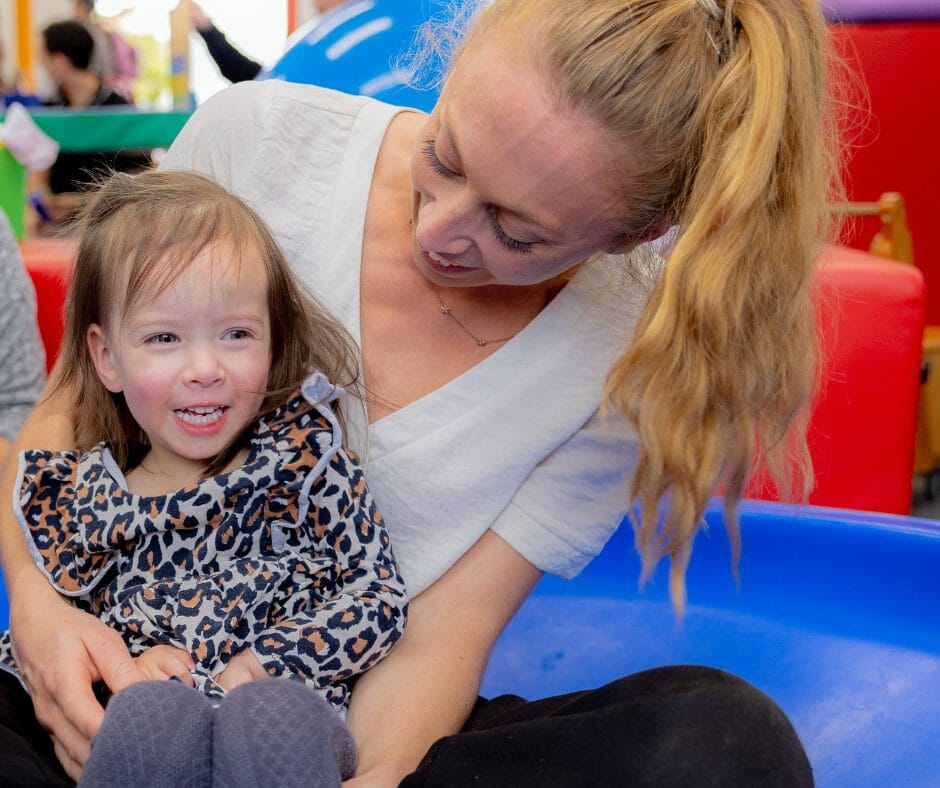
- Any condition approved for NDIS funding
- Early Childhood Early Intervention (ECEI)
- Neurological conditions
- Acquired Brain Injuries
- Rehabilitation Post Surgery eg. SEMLS/Orthopaedic Surgery/Dorsal Rhizotomy
- Cerebral Palsy and Movement Disorders
- Genetic conditions
- Ehlers-Danlos syndrome (EDI)
- Anxiety Disorders
- ASD and ADHD
- Global Developmental Delay
- Epilepsy Syndromes
- Joint Hypermobility
- Scoliosis
- Cortical Vision Impairment (CVI)
- Sensory Processing Disorder
- Plagiocephaly and Torticollis
- Flat feet/Toe walking
- Delayed Early Movement Skills in babies and toddlers
- Sports and Musculoskeletal injuries
Our Services
Intensive Therapy Programs
Intensive Therapy Programs
Physiotherapy
Physiotherapy
Occupational Therapy
Occupational Therapy
Speech Language Pathology
Speech Language Pathology
Exercise Physiology
Exercise Physiology
DMI Therapy
DMI Therapy
Suiting
Suiting
Telehealth
Telehealth
New to Therapies For Kids? Start your journey
Talk to our team now
Request a call back
We are here to help
